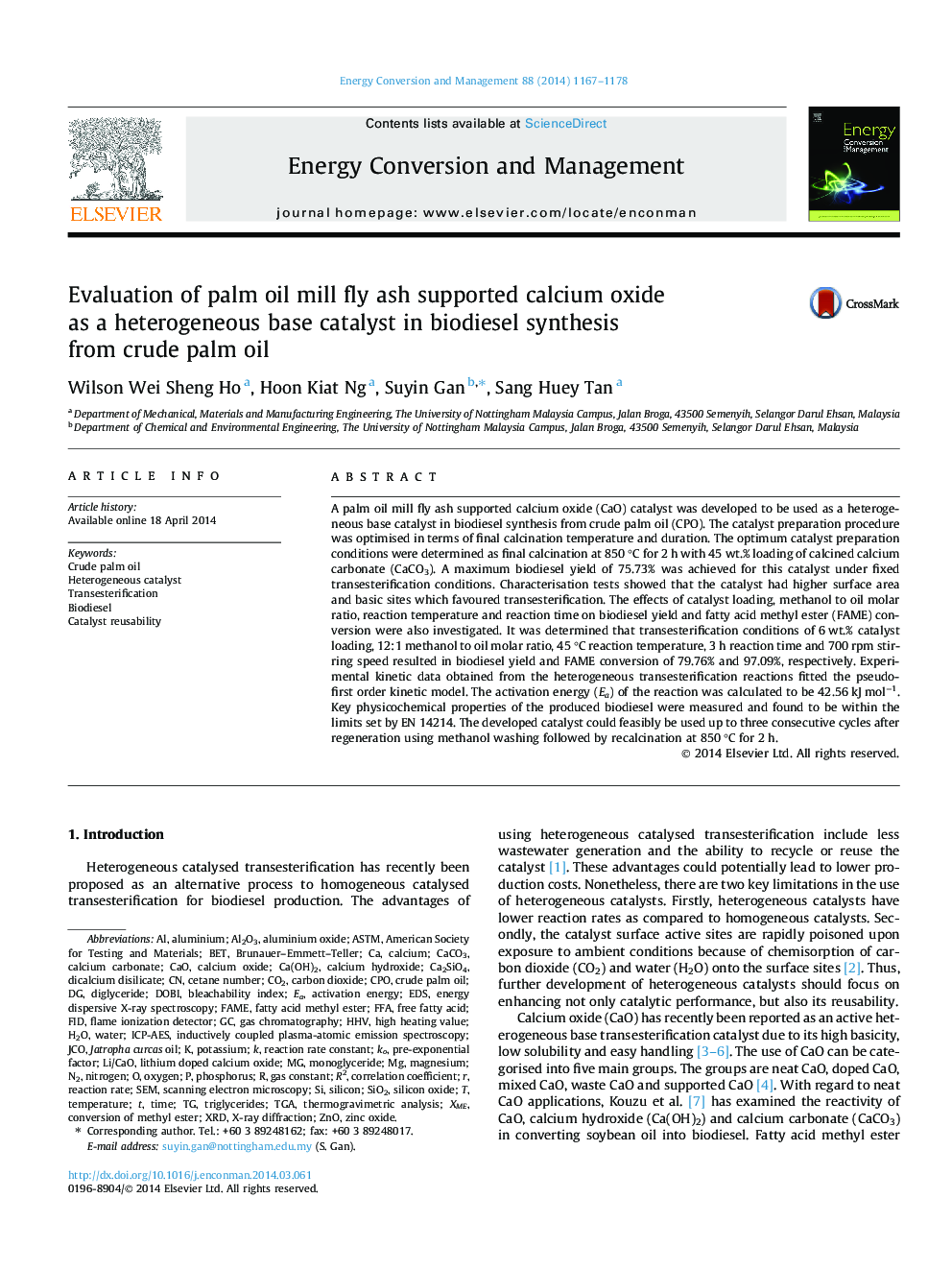| کد مقاله | کد نشریه | سال انتشار | مقاله انگلیسی | نسخه تمام متن |
|---|---|---|---|---|
| 765607 | 1462874 | 2014 | 12 صفحه PDF | دانلود رایگان |
• Calcination temperature is an important influencing factor in catalytic activity.
• The optimum calcination conditions were determined to be 850 °C for 2 h.
• Maximum yield of 79.8% and FAME conversion of 97.1% was achieved.
• Kinetic data fitted the pseudo-first order model and the Ea was 42.56 kJ mol−1.
• The novel catalyst can be reused for 3 cycles with a final biodiesel yield of 60%.
A palm oil mill fly ash supported calcium oxide (CaO) catalyst was developed to be used as a heterogeneous base catalyst in biodiesel synthesis from crude palm oil (CPO). The catalyst preparation procedure was optimised in terms of final calcination temperature and duration. The optimum catalyst preparation conditions were determined as final calcination at 850 °C for 2 h with 45 wt.% loading of calcined calcium carbonate (CaCO3). A maximum biodiesel yield of 75.73% was achieved for this catalyst under fixed transesterification conditions. Characterisation tests showed that the catalyst had higher surface area and basic sites which favoured transesterification. The effects of catalyst loading, methanol to oil molar ratio, reaction temperature and reaction time on biodiesel yield and fatty acid methyl ester (FAME) conversion were also investigated. It was determined that transesterification conditions of 6 wt.% catalyst loading, 12:1 methanol to oil molar ratio, 45 °C reaction temperature, 3 h reaction time and 700 rpm stirring speed resulted in biodiesel yield and FAME conversion of 79.76% and 97.09%, respectively. Experimental kinetic data obtained from the heterogeneous transesterification reactions fitted the pseudo-first order kinetic model. The activation energy (Ea) of the reaction was calculated to be 42.56 kJ mol−1. Key physicochemical properties of the produced biodiesel were measured and found to be within the limits set by EN 14214. The developed catalyst could feasibly be used up to three consecutive cycles after regeneration using methanol washing followed by recalcination at 850 °C for 2 h.
Journal: Energy Conversion and Management - Volume 88, December 2014, Pages 1167–1178
